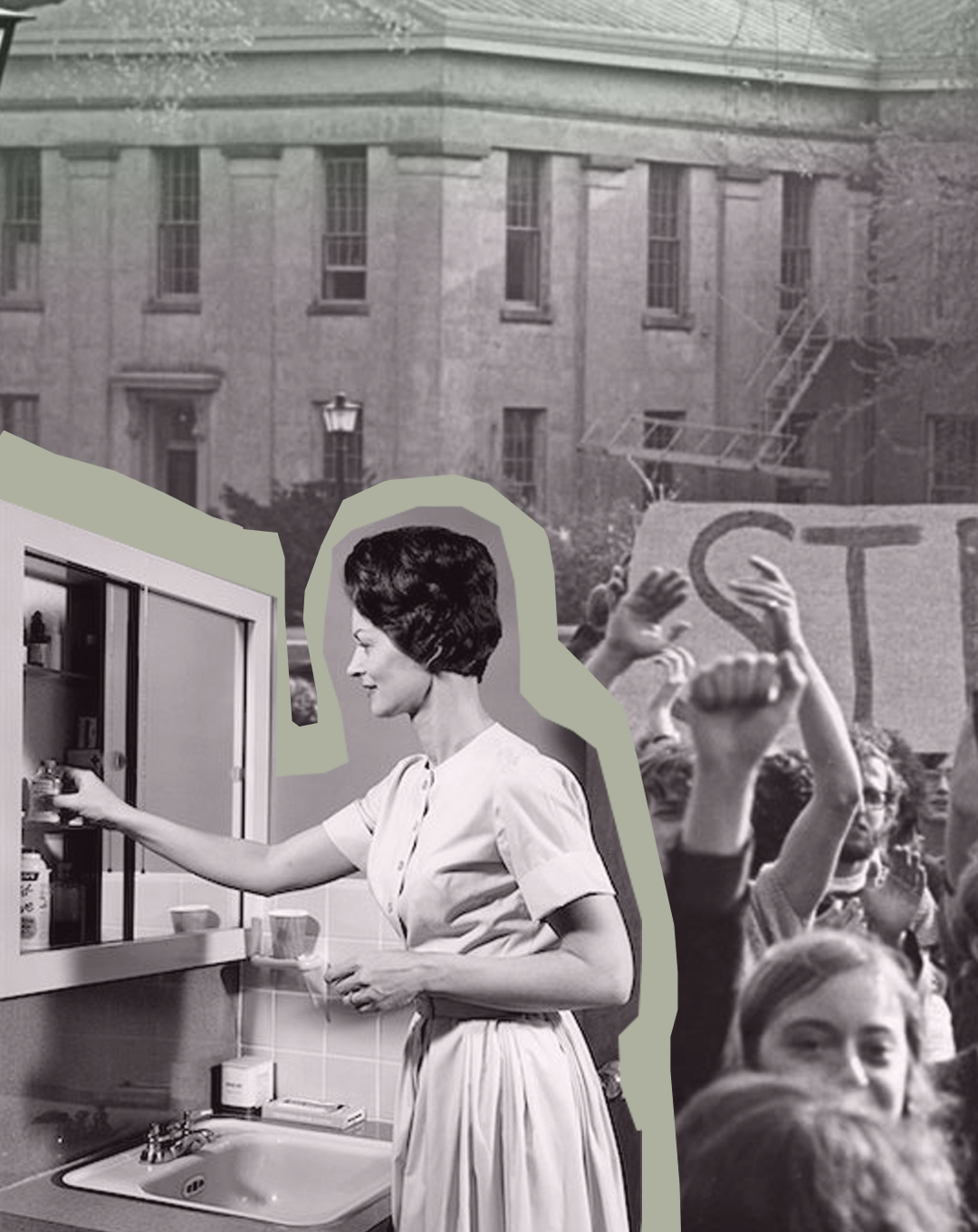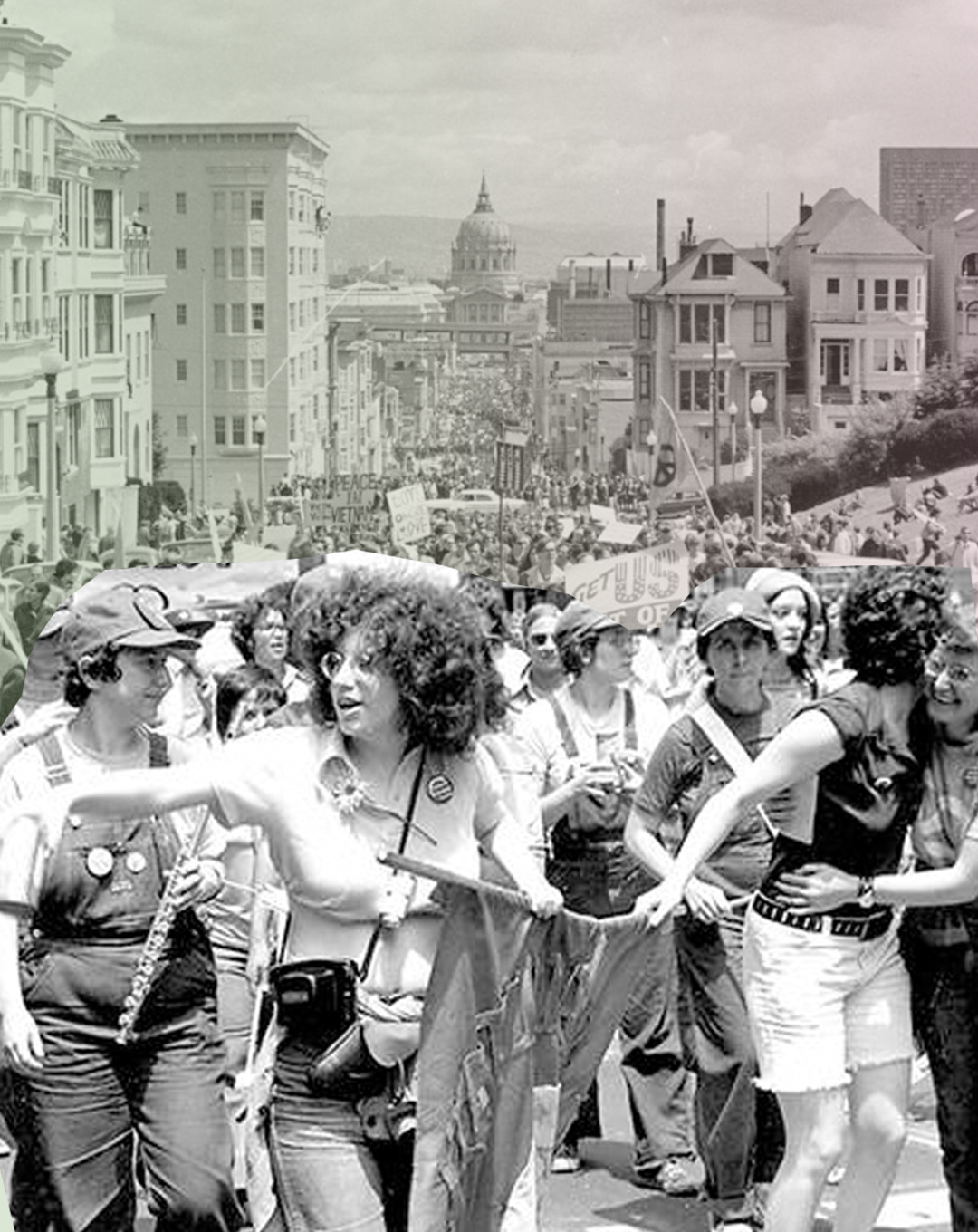Mad Pride: What Is It, and Why Is It Back?
Mad pride came back with a vengeance this year, with a bed dash protest taking place on Thursday 14th July in Parliament Square. Simply put, four self-proclaimed ‘lunatics’ ran down the street with a person in a hospital bed, simulating breaking out of a psych ward. They also took cake to a local psych unit in the hopes that inpatients there would be able to celebrate their shared differences, too.
What is mad pride?
The event is ran by the Campaign for Psych Abolition (CPA) and the philosophy is a brain child of anti-psychiatry. Mad pride events give a similar vibe to LGBT pride or Black pride events, inviting often overlooked communities to celebrate what makes them different from ‘normal’ society - whatever that is - and fight for policy change that would improve their lives.
___STEADY_PAYWALL___
What is anti psychiatry?
Anti psychiatry sits at the ideological intersection of both the social model of disability and the policing abolition movement - two concepts that have received increasingly mainstream recognition in recent years thanks to the tireless work of countless activists. Still, as police abolitionism gained more noteriety, mad pride and psych abolition have been rarely discussed.
Anti-psychiatry experienced it’s intellectual golden years during the 1960’s - 80’s, as many mad, queer, neurodivergent and allied groups campaigned to close asylums and push for a user-led, consent driven model of care. Asylums may have closed for the most part, but the structural violence that became infamous within them still pervades the field. Psychiatry as a science is controversial to say the least - sometimes regarded as a pseudoscience like economics. This is largely due to psychiatric frameworks inability to effectively understand and thus treat many patients with conditions listed in the DSM-5 - a diagnostic manual used by psychiatrists.
I myself have Borderline Personality Disorder on my diagnosis list, which is deemed ‘treatment resistant’ by most medical professionals I’ve worked with. Even they admit there are no clear answers in their field. BPD has a staggering rate of both discrimination and suicide rates connected to it. My ‘BPD traits’ enable me to experience indescribably intense emotions of all kinds, including the highest highs imaginable, and of course, the lowest lows. Yet, whenever I’ve suggested that BPD isn’t solely negative, shrinks look disturbed, suspicious, even.
Chemical lobotomies, such as lithium, are a way to make us more docile, and less inconvenient to sane society. For this reason, such meds are still a fan favourite treatment of doctors; and are often prescribed with consent to out-patients and without consent to in-patients, showing how little understanding and treatment have improved in the past 50 years.
Why does mad pride necessitate rejecting psychiatry?
Psychiatry has also been historically inseparable from the eugenics movement - instrumental in upholding colonial and cisheteropatriarchal order. Conversion therapies, forced sterilisations and inhumane experiments have been carried out on marginalised communities historically. Psychiatry seeks to label ‘deviant’ and ‘disordered’ behaviours, which are compared to a social norm.
The problem with psychiatry is not just who gets to decide what symptoms and conditions make it into the DSM-5, but what actions/treatments are prescribed to correct such behaviours in an attempt to ‘integrate’ us into their perception of sane society, and how this is enforced through violence.
In the same way that there is little evidence that prison reduces recidivism rates, forced psychiatric interventions do not often improve symptoms. 1 in 5 people discharged from acute mental healthcare in the English NHS are readmitted within 6 months, and the median time to readmission is only 34 days.
“People work through trauma and painful symptoms most effectively when enveloped in community support systems and purpose, not in isolation and ostracisation.”
At its best, psychiatric interventions can alleviate your most extreme symptoms whilst you learn coping strategies and how to mask more effectively. Rarely does psychiatric medication do more than paper over the cracks and facilitate long term talking therapies. At its worst, psych intervention (especially when forced) compounds and solidifies traumas, making the cycle even harder to break.
Psychiatry often merely adds to our trauma and othering. Many neurodivergent and queer people have been failed by, and are traumatised by, psych interventions. Our rights can be stripped beyond the point of sane prisoners and even in the absence of crime being committed. The line between offender and patient does not exist beyond the theoretical. Policing and psychiatric institutions often liaise and rarely care to take on input from the patient - police are also usually the first people to attend mental health crises.
How does the social model of disability apply to madness and neurodivergence?
I always say that it’s the people with a clean bill of mental health who are the crazy ones. Mental anguish is the most rational response to our emotionally stunted lives under late stage capitalism. If we acknowledge that under the social model of disability, an inaccessible society disables those with physical conditions, the same has to be true for emotional or mental conditions. The medical model of mental health is failing us.
It’s important to clarify here that there’s a difference between being anti-psychiatry and anti-psychology, and that whilst the two are often conflated, it’s possible to hold an anti-psychiatry position without also holding an anti-psychology position. Psychology has much more scientific backing, and is aided by neurobiology in ways that psychiatric understanding is not.
Since we live in a society without:
the adequate social safety nets needed to prevent crime, poverty and complex trauma arising, (generational trauma, formation of personality disorders and cripplingly high depression and anxiety rates), and
without the adequate health infrastructure to consistently and appropriately care for eachother;
User-led services underpinned by a deep societal understanding of mental health as part of the social model
This ultimately means that psychiatry feels like an iteration of bootstrap theory, inherently necessary to capitalism - blaming patients deemed to be lacking in ‘personal responsibility’ for not masking their differences well enough or playing their role in ‘productive’ and ‘proper’ capitalistic, neurotypical society convincingly enough.
Even whilst acknowledging the role that childhood experiences and the structural conditions we are raised in play in the formation of our brain - the field has time and time again failed to adequately adjust for social factors in the lives of people they are diagnosing, pathologising, heavily medicating and sometimes forcibly incarcerating. Without addressing the factors that actually cause or worsen our struggle, psychiatry can feel incredibly punitive and not at all rehabilitative. In a society that defines worth by productivity, those of us at risk of psych intervention are often considered more disposable, and used as a cautionary tale for those thinking of deviating a little too far from the norm.
To anyone who has experienced a psych ward or interventions you didn’t consent to - I’m so sorry. I’m also sorry to all those who signed up for psych interventions naively and hopefully with promises of fitting in more, of passing as sane or neurotypical. People work through trauma and painful symptoms most effectively when enveloped in community support systems and purpose, not in isolation and ostracisation. We have always, and will always, care most effectively for each other, without the dehumanisation inflicted all too often by ‘help’ promised by state apparatus. The current system has destroyed so many lives, and the more costs us, the more we must defend our stake in society as proudly insane, neurodiverse and uncontainable.
Words: Dayna Latham


